By Killian Fox/The Guardian—
The musician on his early struggles in London, the enduring appeal of his song Many Rivers to Cross, auditioning Bob Marley, and the problem with Jamaican independence
One of the great pioneers of reggae, Jimmy Cliff was born in Jamaica in 1944 as James Chambers, and started writing songs while in primary school. He moved to Kingston as a teenager to pursue music and had his first hit at 14 with Hurricane Hattie. After stints in New York and London he returned to Jamaica and played the lead role in the 1972 film The Harder They Come, whose soundtrack (featuring four of Cliff’s songs) helped popularize reggae around the world. The film has just been rereleased for its 50th anniversary, and Cliff’s latest album, Refugees, his first in a decade, is out now on UMe.

You tackle some weighty subjects on your new album – racism, money lust, the refugee crisis. Was that your motivation for making it: to speak out on these issues?
No, I wanted to make it because I wanted to make new music. And along the way these songs were inspired. A lot of the way I write is: I talk lyrics into my phone. Then I listen back and think: ‘Wow, this sounds good, and this is a relevant song for the time, I had no idea!’ So it came like that, and that’s a happy feeling.
It’s 50 years since The Harder They Come. When did you first realize it was going to be a hit?
Only when they started getting ready to do advertising. Back in those days there were few of us African descendants who came through the cracks to get any kind of recognition. It was easier in music than movies. But when you start to see your face and name on the side of the buses in London that was like: wow, what’s going on? Reggae music was still considered a novelty. Once the music had a chance to be recognized, it just jumped out at people. And then [the film] showed people where the music was coming from.
You had no screen acting experience. How did you convince the director, Perry Henzell, to give you the part?
The director was the one who convinced me! Because I was doing good in Europe. I had hits – Wonderful World, Beautiful People, Vietnam. But Perry said to me: “Jimmy, I think you’re a better actor than a singer.” That shocked me, because I always felt the same way. “Wow, this guy can read minds.” He read a few scenes with me and said: “Yes, this is the man I’ve been looking for to play my movie all these years.”
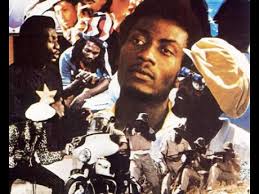
Obviously you didn’t become a gangster like your character Ivan in the film, but there was some common ground. You were both country boys dreaming of a music career.
Yes, when I came to Kingston I lived in areas that were gangster-infested, and to be quite honest, the only thing that stopped me from joining those gangs full-time was I didn’t know where I would bury my head if my family heard that I was in Kingston firing a gun. I would pray for the Earth to open and take me in.
You lived in London for a while when you were starting out. What was your experience?
Boy, London was a bitch [laughs]. But I have to give credit, because it was hard in some ways – I experienced racism in a manner I had never experienced before, and that was really tough for me – but there was a lot to learn. I visited museums, I mixed with people, I learned a lot. So it was a two-way street.
Many Rivers to Cross came out of that experience in England. It’s been covered so many times – by John Lennon, Annie Lennox, UB40, Harry Nilsson, Cher. What is it about that song that resonates with people?
I think there are some songs that are life-touching, more than other songs. And the depth where that song was coming from, it couldn’t help but touch people in general. The song was coming from a place of my ancestors, when I start realizing what my ancestors had been through. And so I put it all in the song.
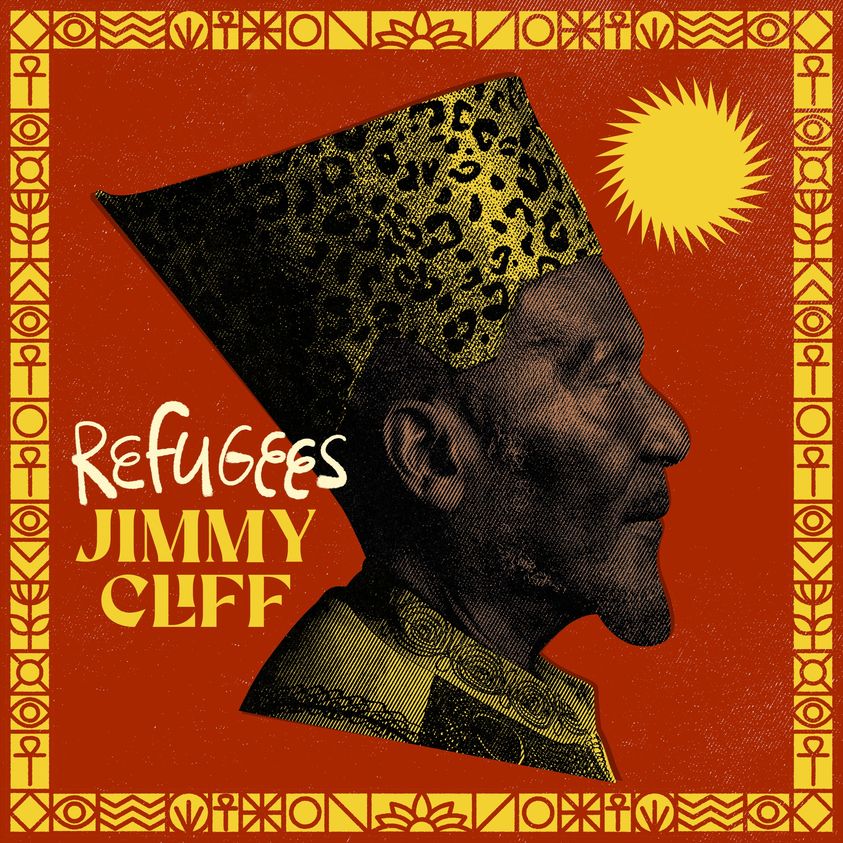
In 2002 you gave away your album Fantastic Plastic People for free on the internet using peer-to-peer filesharing software. That seems like quite a forward-thinking move. What prompted you to do it?
I can’t really say for sure. But I felt that was a fairly good album, and I wanted to find a way to get it out there to the people. And that seemed like a good way to do it.
Did stardom agree with you?
Sometimes. But not always. I found that I made enemies for no reason, just by being successful. That was a very strange thing to me. And also, if I wanted my privacy, it wasn’t that easy to come by. So yeah, it had its ups and downs.
You’re one of the last remaining reggae pioneers. Which of your peers do you remember most fondly?
Eddy Grant. Because we lived in England at the same time. And even though I started out before Bob Marley, and helped him to make a start, it didn’t have the same meaning as the period in London with Eddy Grant. In England we had to fight to get any kind of recognition. Jamaica is a country of 90% African descendants, so I didn’t find it as hard getting recognition, identity, respect there. Eddy was one of the comfortable spirits that I found I could reason with.

You auditioned Bob Marley and helped him get his first recording. What were your first impressions?
Bob was very ambitious. He knew where he wanted to go and had the energy to get there. I tell you a story. Bob came to Island Records when I was getting ready to quit the label. So being the type of character that I am, I was saying to Bob: “Be careful with [Island Records founder] Chris Blackwell.” And he just suddenly hit back and said: “Me know him tricky.” He was so sharp, I didn’t need to say anything more. I didn’t know that, because the first time we met, he was always … not to say quiet, but introspective.
But he was more perceptive than you realised.
Yeah. And looking at him, you could tell he had some kind of aura. He wasn’t always on the Earth plane.
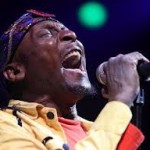
This year marks the 60th anniversary of Jamaican independence. What are your thoughts on Jamaica potentially becoming a republic?
Well, to be independent means one is able to think and therefore act independently, so when an island like Jamaica, say, is independent, it’s not real, because the colonial master still prints Jamaican money. What’s to stop him from saying: “I’ll just take this little bit here for myself.” So the point about independence is, if you cannot think independently, you can’t act independently.
What’s the best lesson that life has taught you?
Seek to know who I am, and be who I am.
Your daughter Lilty appears on the new album. Is music something she wants to pursue? And would you encourage it?
Well, she’s got it – got that angel voice. She used to sing when she was a baby, before she talked, so I’m not surprised, and I’m quite happy for her.
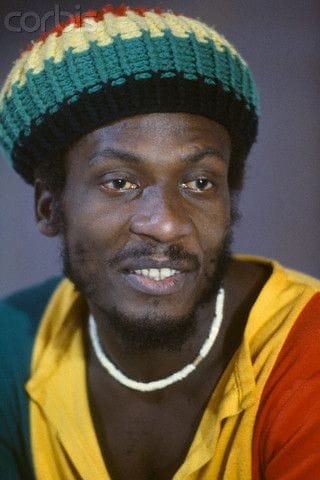
Where are you happiest?
In Africa. No particular area, even though I have some land in Liberia, where Marcus Garvey wanted to take black people. I love it, but there are other places that I love, like Sierra Leone, east Africa, southern Africa. I love being in Africa, I just love the atmosphere.
What’s your proudest achievement so far?
Well, this little ignorant-in-so-many-ways African boy came up out of the ghetto and out of the country. I remember telling my cousins that that place I heard is called London, I’m going to go there. That place I heard is called Berlin, I’m going to go there. Mainly European places, and I went to them all. And I pulled myself out and stood up.
And did it with great style …
With great style [laughs]. Yes.
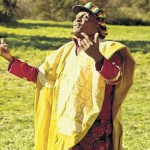
- The Harder They Come is in UK cinemas now and available on BFI Player. Refugees by Jimmy Cliff is out on UMe
… we have a small favor to ask. Tens of millions have placed their trust in the Guardian’s fearless journalism since we started publishing 200 years ago, turning to us in moments of crisis, uncertainty, solidarity and hope. More than 1.5 million supporters, from 180 countries, now power us financially – keeping us open to all, and fiercely independent.
Unlike many others, the Guardian has no shareholders and no billionaire owner. Just the determination and passion to deliver high-impact global reporting, always free from commercial or political influence. Reporting like this is vital for democracy, for fairness and to demand better from the powerful.
And we provide all this for free, for everyone to read. We do this because we believe in information equality. Greater numbers of people can keep track of the events shaping our world, understand their impact on people and communities, and become inspired to take meaningful action. Millions can benefit from open access to quality, truthful news, regardless of their ability to pay for it.
Every contribution, however big or small, powers our journalism and sustains our future. Support the Guardian from as little as $1 – it only takes a minute. If you can, please consider supporting us with a regular amount each month. Thank you.


You must log in to post a comment.